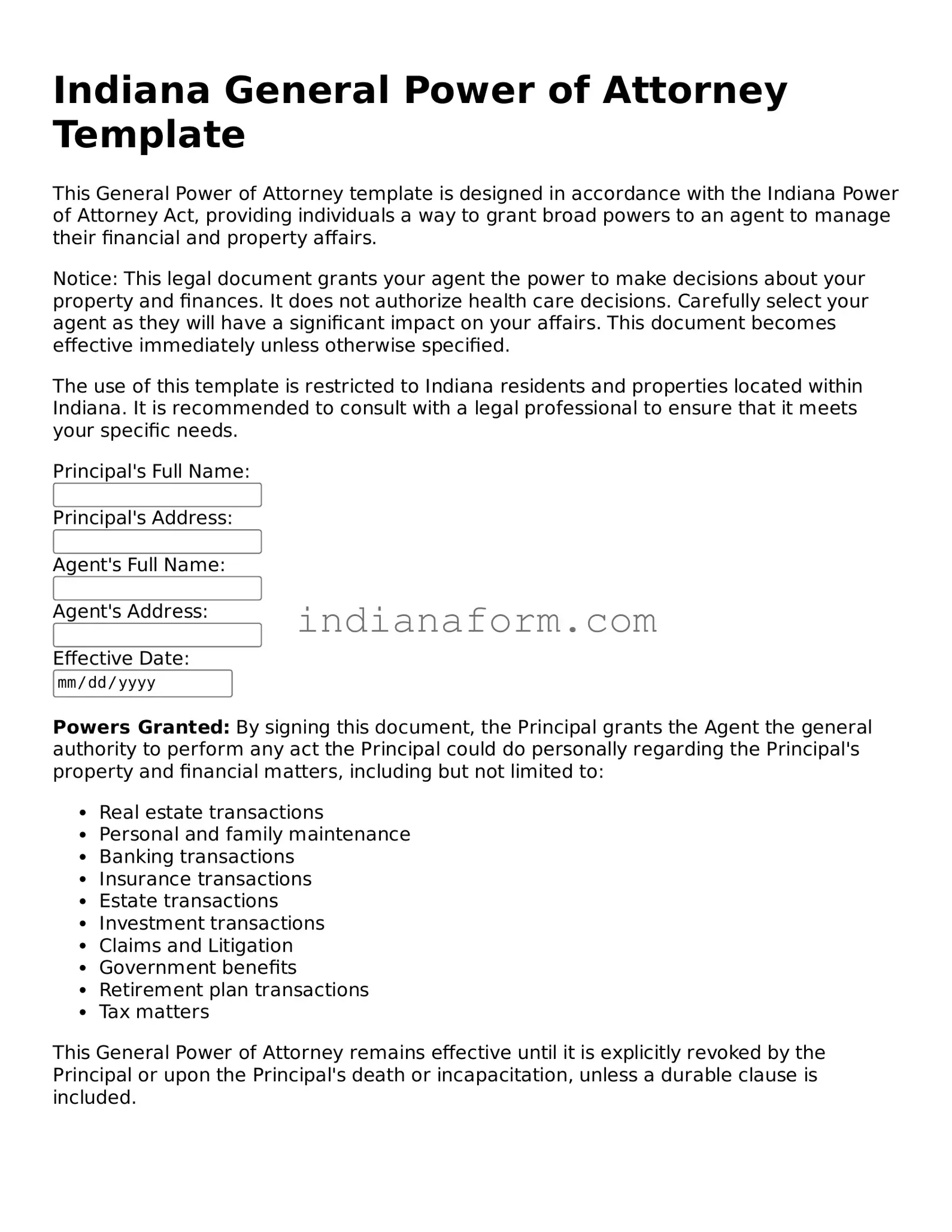Indiana General Power of Attorney Template
The Indiana General Power of Attorney form is a legal document that allows an individual to grant broad authority to another person to conduct a wide range of activities on their behalf. This delegation of powers can include managing financial affairs, making business decisions, and handling personal matters. By completing this form, the person making it, known as the principal, ensures that their affairs can be managed according to their wishes, even if they become unable to do so themselves.
Fill Out Your Document Online

Indiana General Power of Attorney Template
Fill Out Your Document Online

Fill Out Your Document Online
or
⇓ General Power of Attorney PDF Form
Don’t stop halfway through your form
Edit your General Power of Attorney online and get it downloaded.